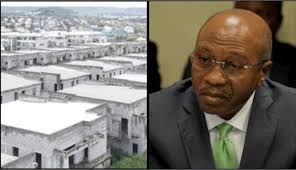Nigeria Customs Service Seizes Contraband Worth Over N921 Billion, Strengthens Enforcement and Digital Initiatives
by Beady Nnanna ·
The Nigeria Customs Service (NCS) has announced a significant crackdown on illicit imports, intercepting contraband items valued at over N921 billion in the first four months of 2025. The seizures encompass a range of prohibited goods, including expired food products, unregistered pharmaceuticals, and advanced security equipment, highlighting the ongoing efforts to secure Nigeria’s borders and safeguard public health.
Major Seizures and Interceptions
During a briefing at the Apapa Command, Customs Controller-General Bashir Adeniyi revealed that the NCS intercepted 11 separate shipments of contraband, involving multiple containers — five 40-foot, two 20-foot, and several loosely concealed items. Among the seized goods were:
- 89 and 242 cartons of unregistered pharmaceuticals, including drugs like sildenafil citrate used for sexual enhancement
- Over 1,000 cartons of hydra-sildenafil citrate tablets
- Expired margarine products
- Security gadgets such as drones, telecommunication devices, and walkie-talkies, all lacking proper certification or end-user documentation
Adeniyi expressed concern over the rising influx of unregistered medicines, particularly those with potential health hazards, warning that such items pose serious risks to public safety.
Addressing Smuggling Trends
Analysing these seizures, the CG identified five notable smuggling patterns:
- The proliferation of sexual enhancement drugs like sildenafil citrate, often smuggled for illicit consumption.
- Misdeclaration of pharmaceutical shipments as general merchandise or cosmetics to evade detection.
- Diversification of contraband shipments—combining pharmaceuticals, expired food, and restricted tech gadgets into single containers—indicating sophisticated crime syndicates.
- Exploitation of lax regulatory controls in certain exporting countries.
- Increasing importation of security threats, including drones and communication gadgets, with implications for national security.
Enhancing Enforcement and Digital Transformation
Adeniyi announced that the NCS is ramping up surveillance across seaports, airports, and land borders, aligning efforts with Nigeria’s economic development goals and strategic directives. He highlighted the ongoing rollout of the B’Odogwu Customs Unified Management Information System, a digital platform aimed at streamlining customs operations. While acknowledging initial challenges during its pilot phase at PTML and Tin Can Island Port, he emphasised the government’s commitment to continuous improvements, stakeholder engagement, and system flexibility.
Collaborative Efforts and Future Outlook
The CG credited the successes to a combination of intelligence-led enforcement strategies and collaboration with agencies such as NAFDAC, the Nigeria Drug Law Enforcement Agency, and the Office of the National Security Adviser. In the first quarter alone, the NCS recorded 22 narcotics-related interceptions with a duty-paid value reaching N730 billion, marking a 34.6% increase over the previous year.
He warned that the fight against smuggling would persist, urging stakeholders in trade and transportation to adhere strictly to regulations and report suspicious activities. To ensure safety during ongoing operations, areas surrounding the most sensitive containers were declared restricted, with officers emphasising the importance of collective vigilance in combating organised transnational crime.
Final Words
As Nigeria intensifies its crackdown on illicit trade and advances its digital capabilities, these efforts reflect a strong commitment to national security, public health, and economic stability. The Customs Service encourages the public to cooperate by reporting suspicious imports through secure channels and remaining vigilant against the evolving tactics of criminal networks.



